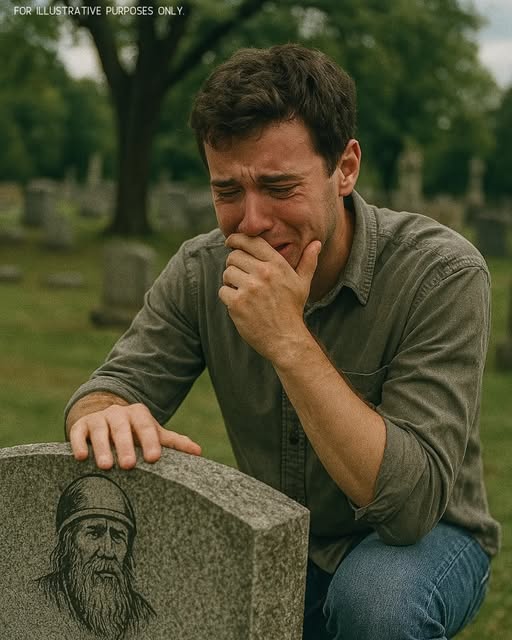For years, I misjudged Frank Wilson, the biker who lived across the street.
With his Harley, tattoos, and leather vests, I assumed he was dangerous. I avoided him, warned my wife and daughter to keep their distance, and even reported his biker friends for “suspicious gatherings.” I never saw him as anything but a threat.
Everything changed the night my car skidded off Mountain Creek Road during a storm. The car flipped and crashed into a tree. I lost consciousness on impact.
When rescue crews found me, Frank’s lifeless body was sprawled over mine, shielding me from the explosion that followed. He had pulled me from the wreck and covered me with his body to absorb the blast.
The hospital staff told me I wouldn’t have survived if not for him. I was stunned.
Why would a man I had judged and treated with contempt risk his life—no, give his life—for me?
For illustrative purpose only
I’d barely ever spoken to Frank. When he moved in three years ago, I watched from my window as a group of bikers escorted him to the neighborhood.
The rumble of engines, the tattoos, the patches—I filed a noise complaint the next day. “Keep our daughter away from that place,” I told my wife, Sarah.
AD
She only said, “You don’t even know him.”
AD
She was right. I didn’t.
In the hospital, Sarah visited daily. After I regained consciousness, she gave me a worn leather journal and said, “Frank’s daughter thought you should read this.”
I hadn’t known he had a daughter. I hadn’t known anything about him.
The journal began with entries from decades ago—Frank’s return from Vietnam, his struggles with PTSD, and how he found healing in motorcycles and brotherhood. He’d been a combat medic.
His biker club wasn’t a gang, but a group of veterans supporting one another and their communities. They helped escort funerals, raised funds for orphaned kids, and ran charity drives.
For illustrative purpose only
One passage in the journal stuck with me: “New neighbor avoids me. Wife’s kind, though. Their daughter smiles like my Ellen did.
Maybe one day I’ll offer him a ride. Some men just need the wind to understand.”
I’d always seen Frank through the lens of fear. I never considered what kind of man he truly was.
After I was discharged, the Iron Horsemen—Frank’s biker club—visited.
Dozens of them lined our street in silence. Their vice president, Duke, stepped forward and said, “Frank would want to know how you’re doing.”
Then he added, “He didn’t save you because of who you are. He did it because of who he was.”
Before they left, Duke handed me a small wooden box. Inside was a motorcycle key and a note:
“She’s an ’84 Softail. I called her Second Chance. She’s yours now.”
I didn’t ride motorcycles. I’d never even sat on one. The next day, I went to see Frank’s daughter, Melissa, to return the key. She looked so much like her father—strong, steady.
“My dad believed in giving people a second chance,” she said. “Even when they didn’t ask for it.”
